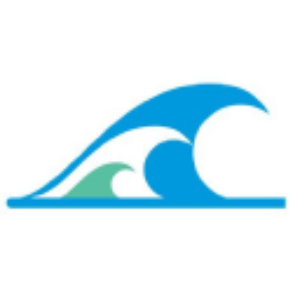Longboard Pharmaceuticals Initiates Phase 3 DEEp SEA Study Evaluating Bexicaserin in Dravet Syndrome
- First sites activated with a number of additional rapid-start sites being activated in the coming weeks
“We are thrilled to announce the initiation of our global Phase 3 DEEp Program with our first sites activated and multiple additional sites primed for activation within the next couple of weeks for our DEEp SEA Study in Dravet syndrome. DEEp SEA is the first of two trials within the DEEp Program,” stated Chad Orevillo, Longboard’s Executive Vice President, Head of Operations. “I am extremely proud of the team for rapidly progressing from Phase 2 data to Phase 3 initiation further underscoring our commitment to the execution, efficiency and enrollment of our DEEp Program. We look forward to working with the healthcare professionals, patients and families on this important research program.”
“I am pleased to see Longboard’s recent progress in Dravet syndrome — first, with Rare Pediatric Disease and Orphan Drug designations, and now with the initiation of the DEEp SEA Study. Longboard’s unique and efficient approach to clinical development in a range of DEEs, including Dravet, is remarkable. A large unmet need still exists not only in Dravet, but in so many other rare epileptic conditions, and I am so happy to see continued advancements in the space,” stated Mary Anne Meskis, Founding Member and Executive Director of Dravet Syndrome Foundation.
About the DEEp SEA Study
The DEEp SEA Study (LP352-302) is a global Phase 3 double-blind, placebo-controlled clinical trial to evaluate the efficacy of bexicaserin in Dravet syndrome as assessed by countable motor seizures in ~160 participants between the ages of two and 65 years old. An important secondary objective is to evaluate the safety and tolerability of bexicaserin. Following a 5-week screening period and baseline evaluations, study participants initiate dose titration over a 3-week period and subsequently continue on the highest tolerated dose throughout the maintenance period of 12-weeks. Following the maintenance period, eligible participants will be given the opportunity to enroll in the 52-week DEEp Open-Label Extension (DEEp OLE Study LP352-303). The Phase 3 DEEp SEA Study is part of the broader DEEp Program which will take place across ~80 sites globally and include ~480 participants with a range of Developmental and Epileptic Encephalopathies (DEEs).
ABOUT LONGBOARD PHARMACEUTICALS
Longboard Pharmaceuticals, Inc. is a clinical-stage biopharmaceutical company focused on developing novel, transformative medicines for neurological diseases. Longboard’s small molecule product candidates are based on more than 20 years of GPCR research. Bexicaserin (LP352), an oral, centrally acting 5-hydroxytryptamine 2C (5-HT2C) receptor superagonist, with no observed impact on 5-HT2B and 5-HT2A receptor subtypes, is being evaluated in a global Phase 3 clinical program (the DEEp Program). The FDA has granted Breakthrough Therapy designation for bexicaserin for the treatment of seizures associated with Developmental and Epileptic Encephalopathies (DEEs) for patients two years of age and older. Longboard is also evaluating LP659, an oral, centrally acting, sphingosine-1-phosphate (S1P) receptor subtypes 1 and 5 modulator, which is in development for the potential treatment of rare neuroinflammatory conditions. Longboard recently completed a Phase 1 single-ascending dose (SAD) clinical trial for LP659 in healthy volunteers.
Bexicaserin and LP659 are investigational compounds that are not approved for marketing by the FDA or any other regulatory authority.
FORWARD-LOOKING STATEMENTS
Certain statements in this press release are forward-looking statements that involve a number of risks and uncertainties. In some cases, you can identify forward-looking statements by words such as “being”, “focus”, “primed for”, “commitment”, “look forward to”, “objective”, “will”, “opportunity”, “working to”, “designed to”, “plan”, or the negative, plural or other tenses of these words, references to future dates or time periods, or other comparable language, and they may include, without limitation, statements about the following: Longboard’s product candidates and programs (including about bexicaserin, FDA designations for bexicaserin, LP659, the DEEp Program and DEEp Sea Study, participating sites and their activation, and participant enrollment), plans, focus and work. For such statements, Longboard claims the protection of the Private Securities Litigation Reform Act of 1995. Actual events or results may differ materially from Longboard’s expectations. Factors that could cause actual results to differ materially from those stated or implied by Longboard’s forward-looking statements include, but are not limited to, the following: the standards for Breakthrough Therapy and other designations are not the same as the standard for drug approval, Breakthrough Therapy designation is based on preliminary clinical evidence, and not all drugs designated as Breakthrough Therapies ultimately will be shown to have substantial improvement over available therapies; the FDA may later decide to rescind a designation if it determines the designation is no longer supported by subsequent data; Longboard’s product candidates are in a lengthy research and development process, the timing, manner and outcome of research, development and regulatory review is uncertain, and Longboard’s product candidates, including bexicaserin and LP659, may not advance in research or development or be approved for marketing; enrolling participants in clinical trials is competitive and challenging; results of clinical trials and other studies are subject to different interpretations and may not be predictive of future results; topline or interim data may not accurately reflect the complete results of a particular study or trial and remain subject to audit, and final data may differ materially from topline or interim data; risks related to unexpected or unfavorable new data; nonclinical and clinical data is voluminous and detailed, and regulatory agencies may interpret or weigh the importance of data differently and reach different conclusions than Longboard or others, request additional information, have additional recommendations or change their guidance or requirements before or after approval; risks related to Longboard’s limited operating history, financial position and need for additional capital; Longboard will need additional managerial and financial resources to advance all of its programs, and you and others may not agree with the manner Longboard allocates its resources; risks related to the development and commercialization of Longboard’s product candidates; risks related to relying on licenses or collaborative arrangements; other risks related to Longboard’s dependence on third parties; competition; product liability or other litigation or disagreements with others; government and third-party payor actions, including relating to reimbursement and pricing; risks related to regulatory compliance; and risks related to Longboard’s and third parties’ intellectual property rights. Additional factors that could cause actual results to differ materially from those stated or implied by Longboard’s forward-looking statements are disclosed in Longboard’s filings with the Securities and Exchange Commission (SEC). These forward-looking statements represent Longboard’s judgment as of the time of this release. Longboard disclaims any intent or obligation to update these forward-looking statements, other than as may be required under applicable law.
View source version on businesswire.com: https://www.businesswire.com/news/home/20240926926536/en/
Megan E. Knight
VP, Head of Investor Relations
IR@longboardpharma.com
858.789.9283
Source: Longboard Pharmaceuticals, Inc.







